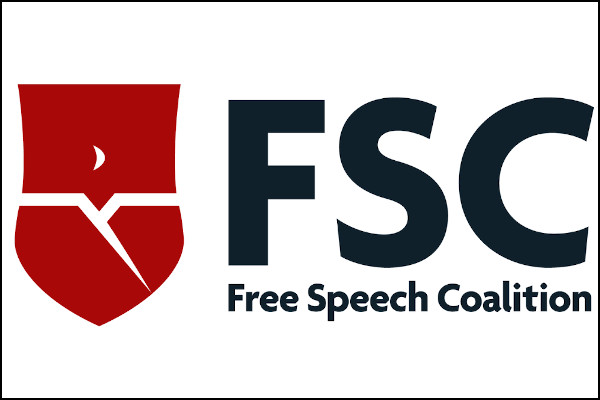 LOS ANGELES, Calif. – In a statement published today, the Free Speech Coalition criticized the U.S. Supreme Court’s decision published last Friday in Free Speech Coalition v. Paxton, the FSC’s challenge to Texas’s age-verification mandate, HB 1181.
LOS ANGELES, Calif. – In a statement published today, the Free Speech Coalition criticized the U.S. Supreme Court’s decision published last Friday in Free Speech Coalition v. Paxton, the FSC’s challenge to Texas’s age-verification mandate, HB 1181.
“In a radical departure from precedent, the Supreme Court affirmed the 5th Circuit Court of Appeals decision in Free Speech Coalition v. Paxton, ruling that online age-verification for material ‘harmful to minors’ is constitutional and potentially granting the government wide power to limit access to the internet,” FSC stated.
FSC Executive Director called it a “shocking decision” with implications that go “far beyond adult content or adult websites.”
“The Court has ignored the traditional protections of the First Amendment online and given states free reign to censor controversial content and ideas, so long as the goal is to protect children,” Boden said.
FSC noted in its statement that prior rulings from the Court “held that content-based restrictions on speech needed to be both narrowly tailored and the least restrictive method of accomplishing the law’s goal, a standard known as ‘strict scrutiny’.” In the FSC’s challenge, however, the Court “ruled that when it comes to material ‘harmful to minors,’ the government may use a significantly more relaxed standard, intermediate scrutiny” and further “the Texas law meets that standard.”
“The implications are profound,” FSC asserted. “In other states, legislators, school boards and attorneys general have already applied the same ‘harmful to minors’ standard to restrict sex education materials, drag shows, Pride displays and classic literature like The Handmaid’s Tale and Beloved.”
FSC also noted that while the Texas law requires age-verification for sites comprised of at least one-third material that is harmful to minors, “Thomas’ ruling did not acknowledge such limits as a necessary, suggesting that more draconian restrictions on internet access might also be permissible.”
“In Tennessee, internet users are required to verify their identity every sixty minutes,” FSC observed. “In South Dakota, any site with any amount of material ‘harmful to minors,’ including social media, must age-verify all visitors. Both laws carry criminal consequences.”
FSC added that the decision “will have significant implications for the fight against internet censorship bills in the United States” and the FSC’s legal team is “evaluating the decision and will provide further guidance in the coming days.”
The organization said it also “urges compliance” with state age-verification laws even as the fight against other, similar laws continues.
“The Supreme Court’s affirmation of the 5th Circuit Court of Appeals decision in Free Speech Coalition v. Paxton will significantly impact our litigation across the country,” FSC said. “As each case and law is different, we are consulting with our legal counsel to determine whether those laws will also survive the intermediate scrutiny standard established by the Supreme Court.”
“Age-verification laws in 18 states are currently in effect,” FSC continued. “Age-verification laws in three more states – Georgia, South Dakota and Wyoming – will go into effect on July 1. As we have cautioned previously, platforms that choose to be accessible in those states should comply with the laws to limit liability. We urge platforms to be vigilant as we expect enforcement of those laws to increase dramatically in the coming weeks and months.”
You can read the FSC’s full statement on the Supreme Court’s decision here.












